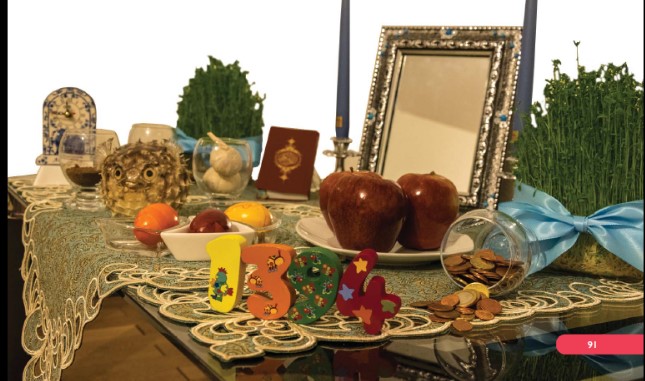Nawruz is a Persian word meaning “New Day”. It is also the first day of spring and it is celebrated every year on the 21st of March. The origins of Nawruz festival are traced to ancient Persia. Ttoday, it is celebrated in Iran, Tajikistan, Afghanistan, Pakistan, and many other countries where Ismailis and other Shia communities reside.
Nawruz provides an opportunity to reaffirm the ethical message of Islam. It is a time of forgiveness and new beginnings, and extending goodwill, help and support towards those in need. Additionally, it allows us to reflect on our personal lives; we are encouraged to think about our achievements and failures during the previous year and make resolutions for the New Year.
The Nawruz festival invites us to reflect on the concept of renewal in our lives. Prayers are offered by the believers for peace, prosperity, sustenance, and faith. Bestowing his blessings to the Jamats across the globe, on the occasion of Nawruz, Mawlana Hazar Imam said:
“… I say to you: Nawruz Mubarak. May the New Year be a new year of happiness, and peace and joy, and may you always have smiles on your faces throughout those days. Khanavadan.”
(Farman Mubarak, Dar-es-Salaam, Tanzania, 14 March 1997)
In Iran and other parts of Central Asia, many families celebrate this day by preparing the haft-sin, or seven items beginning with the Persian letter “sin” or “S”. These items include:
- Sabzi – Wheat/Lentil Sprouts, which represents rebirth
- Samanu – Sweet Wheat Pudding, which represents health and fertility
- Sib – Apple, which represents health and beauty
- Sinjid – Sweet and dry fruits of lotus tree, which represents love
- Sir – Garlic, which represents medicine or good health
- Sumak – Persian spice, which represents sunrise such that light overcomes darkness
- Sirka – Vinegar, which represents age and patience
Some people choose to include other items such as Qur’an, ayneh (mirror), candle, different colored flowers, coins, painted eggs, goldfish, and sweets.
In the south Asian tradition, a significant part of the Nawruz celebration is in the blessed tabarruk (Juro) that all members of the Jamat receive. The juro comprises of symbolic items that signify a new beginning. These include:
- Wheat Seeds (roji): represents growth, life, and abundant food
- Sweet or stone sugar (sakar): represents happiness, unity, love and affection
- Cloves: represents livelihood of life
- Dry dates or Apricot: represents good health and long life
- Raisins: represents guard against illnesses
- Nuts (almonds, cashews, pistachios): represents stamina and intelligence
- Mint: represents purity and a curing agent.
Nawruz Mubarak!
[Adopted from the IIS curriculum: Faith and Practice in Islamic Traditions, Volume 2]

